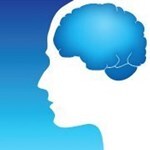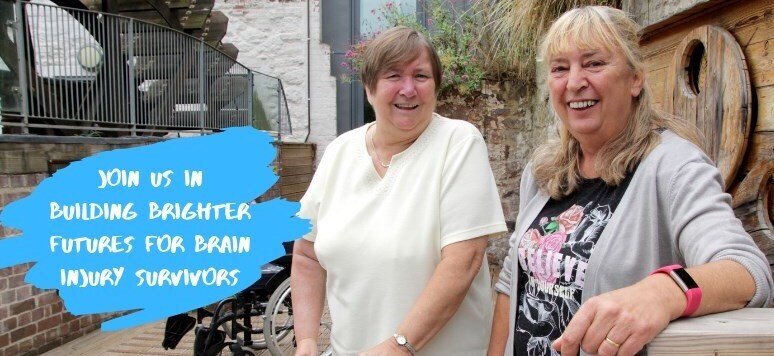About us
Our brains are amazing. They are faster than any computer with billions of intricate connections and circuits which control everything we do. But what happens when something goes wrong? When the part of you that makes it possible for you to think, talk, walk or even blink, no longer works properly?
“The last thing I remember was the lorry coming towards me.”
Brain injury can happen to anyone and often happens suddenly. Our brains can be injured in many different ways, through illness, infections, stroke or physical trauma. How people are affected by an injury depends on which part of their brain is damaged and the extent of that damage. This ranges from short term difficulties to life-changing acquired disabilities.
“I didn’t recognise my husband and five-year-old daughter. I could no longer care for my family. My teaching career was over. All the things that had defined me previously, were gone.”
An acquired brain injury goes hand in hand with making sense of a new you, of the things you find difficult, the things you can’t do any more and the help you’ll need to cope and adjust. For many people with a brain injury this is a time of grief for the loss of the life that they were hoping for, of career, of earnings and of financial security. Families, partners, children are profoundly affected too and relationships are often strained as people take on caring roles they never expected.
A common problem
Over 200,000 people are admitted to hospital with an acquired brain injury across the UK each and every year. This means that every 3 minutes someone’s life is turned upside down as they, and their families, begin to recover and come to terms with the things they have lost and the challenges they will face to rebuild their lives.
Across Devon, there are more than 2000 people living with the consequences of an acquired brain injury. At least 1000 people will need care and support to live their lives well, with the majority of this care being given by families, friends and neighbours.
“After surviving a major stroke, my mum sustained a brain injury and was in hospital for three months. Staff at the Royal Devon and Exeter Hospital were amazing. Mum made good progress and was finally discharged three months later. We were so excited to bring her home.
But reality soon kicked in. We quickly realised how much help and support we had had when she was in hospital. Three meals a day. Help to wash and dress herself and to use the toilet. And also the social support. Having professionals there to talk to and to cry on when I needed it, and talking to other families in the same situation as us.
When we moved mum back home, all of that support had been stripped away. We felt totally lost and alone.” Emily, Torquay
Headway Devon is there for families like Emily’s.
Although so many of our clients receive excellent support from the NHS immediately after their brain injury, the journey of recovery and adaptation is a long one for most people and carries on long after they leave hospital. It often means adapting to lifelong changes in what they can do and how they live. Health and social care services are able to offer some support at home but much of the work of coping, recovering and making the best of a very different way of life is done by the person with the brain injury and those close to them. This is where Headway Devon can step in, with practical support with day-to-day living, with emotional support, with help to maximise brain recovery and with support for carers, who can often feel forgotten or overwhelmed.
“I was living at home and my health took a turn for the worse. Without the support I received from
Headway, I would have had no choice but to return to hospital. With the mounting pressures on the
NHS and social care, I don’t think I would have been able to get the support I need. Thanks to Headway I have been able to stay in my home’’
Living well after brain injury
We believe passionately that people can live well after brain injury. We meet amazing people every day who are trying to make the best of their new selves.
Headway Devon supports 220 individual clients and their families. We walk alongside them as they try to make sense of what they have lost as a result of brain injury. Our support often begins in the days and weeks after leaving hospital, in the short window of opportunity for rehabilitation and recovery as their brain tries to develop new nerve pathways in the first few months after their injury. We provide the skilled specialist support people need, enabling them to tackle practical challenges, meet emotional needs and overcome obstacles in all areas of life from finances and housing to education and employment.
But we know there is so much more we can do to help those living with the lifelong after-effects of acquired brain injury across Devon and we aim to support many more individuals and their families in 2022. Our ambition is to make contact with everyone leaving hospital with an acquired brain injury within a few days of getting home. We are working closely with family doctors, hospitals and social care providers to ensure that this year everyone who needs support after brain injury knows about Headway Devon.
"When I came home from hospital, six months after my brain injury, I felt terrified. I didn’t think I could cope. But Headway Devon was there for me. They were my rock. I can’t thank them enough. Without Headway Devon, I don’t think I would be here today.”
What we do
We offer a range of support and activities to those living with acquired brain injury, including:
Providing an in-person lifeline by visiting people in their own homes. Our specialist workers provide practical support as well as companionship, a listening ear, advice, signposting and referral support
Promoting peer-to-peer support:
For clients: Our Day Centres provide a safe space for clients to enjoy the company of others living with a brain injury, learning from and supporting each other and allowing a welcome change of scenery
For families: Our programmes enable families to receive emotional support from those who are in similar situations
Improving life skills, communication and IT skills. We use a range of practical and creative projects like pottery, gardening and woodwork to help with dexterity and problem solving deficits as well as reducing social isolation and raising self-esteem and confidence through group activities
Providing an innovative and very successful carers service. Carers come together with one of the specialist Headway team members to share stories, support each other, get expert advice and insights and feel less alone
Offering support during office hours to anyone who calls us for advice, help, sign-posting or to help them understand what an acquired brain injury is and what it might mean for themselves or someone they are close to. We plan to develop this service into a dedicated online system by the end of March 2022
“When my sister Sarah came out of hospital following a bike accident, she was 38 and had lost the use of the right side of her body. We thought it was game over. Her life as she - and we - knew it, had finished. Headway Devon helped us see that life was still worth living. It wasn’t game over for my sister. We just had to learn to play a different game.”
Changing lives, one day at a time
The clients we work with come from all walks of life and backgrounds and from towns, villages and cities across Devon. But they all have one thing in common: our work makes a difference to them and their families.
We are proud of the impact our work makes and of our reputation as a trusted provider of a specialist service, because
Our support is personalised: No two brains are the same and every person who has sustained a brain injury is affected differently. This is why our services are carefully tailored to the specific struggles, disabilities and strengths of each person we support. We don’t do the ‘one size fits all’ approach. Every person we support centres receives a 1:1 assessment and sets their own personal goals. We keep robust data on how people are doing so we can know with confidence that we are making a positive difference
We are ambitious: We want the very best for the people we support and we believe in their potential to improve. We will do everything we can to help each person make progress and move forward in their lives
We believe in our clients. Each person we work with has their own unique talents and potential. Our support builds on these strengths, skills, passions and resilience to add value to their new life after brain injury
Our approach is rehabilitative: Brains have a remarkable ability to adapt and heal so we do everything we possibly can to help people recover as much as they can. Rehabilitation often means adjusting to a new, and often changing, situation, learning new skills and ways to compensate for ones they have lost. In striving for rehabilitation, clients, staff, volunteers and family members work closely together to co-create shared action plans
We are experts: Our staff team is led by a neuropsychologist; and we work in partnership with seconded therapists from NHS services. We use established monitoring and evaluation systems across all of our services, including the internationally recognised standard in brain injury monitoring: QOLIBRI
Supporters like you allow us to make a positive difference to the lives of hundreds of people through support at home or in day centres. We have been able to continue outreach services by transitioning to one-on-one online sessions and group work, and providing phone-based help to people searching for information about brain injury, when they are often at their most frightened or distressed. You help us run our invaluable carers service. And with your help we know we can do better and more, to reach many more people, to provide more support groups, to nurture peer support and to develop a much more versatile service, using technology to provide much better support to people in rural areas and to begin to address particular needs for people, such as those living with the consequences of more minor injuries or concussion and those coping with the long- term effects of stroke or speech and language problems.



